This article is centered around 4 people from the LGBTQIA community that I find inspiring. I want to say before I get into the specifics that I am a Christian woman and I chose to write on this topic to learn more about the day-to-day lives of these individuals. Just because I do not identify as a member of the LGBTQIA community does not mean that I cannot strive to learn more and educate myself on their experiences, I encourage other allies to do the same. We can all love each other no matter our differences.
The four people that I interviewed are either queer, bisexual or nonbinary. I appreciate all of them speaking out and allowing me to share their stories.
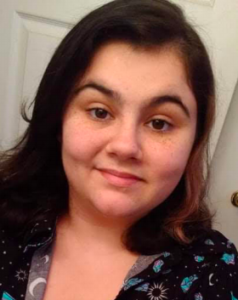 Tegan
Tegan
The first person I spoke with was Tegan; I’ve known Tegan for years and admire them for being very straightforward and honest in who they are. Tegan is nonbinary which means they use them/their pronouns to describe themselves. When asked how long they have identified as nonbinary they stated “I have known I was LGBTQ since middle school, though my understanding of myself has definitely grown in the past 10 years, as has my identity. I currently identify as a queer nonbinary person, and I use they/they pronouns. I am pansexual and grey-aro ace, but using queer as an umbrella term helps to cut down on the explanation.” (Want to learn more about LBGTQIA+ acronyms? Click here).
I asked what they felt was the biggest challenge identifying as nonbinary and they explained that being misgendered is the hardest part because they are often referred to as “ma’am,” even though they are not. They further described that there is a pressure to dress more androgynously.
There’s safety concerns. Being a queer person, in the south especially, can be really scary and even life-threatening.
Another misconception as Tegan explains is “that all nonbinary people are dfab (designated female at birth). This makes it seem like being nonbinary is just “woman-lite” and alienates dmab (designated male at birth) people from the community, which isn’t fair to them and also perpetuates the stereotype.”
People often believe that all nonbinary people use they/them pronouns, which simply isn’t true! You can be nonbinary and use any pronoun, like traditionally binary ones such as she/her or he/him.
When asked if they felt there were prejudices against them in the workplace, Tegan reported that while working in a tax office, they knew not to bring their sexuality up for fear of being fired. Unfortunately (even though most workplaces deem themselves as safe places to work), it is a reality that sometimes one’s sexuality may impact their future at a job. Tegan knew not to bring up the fact that they are gay, and they are aware of when to be open about themselves and when to “turn it off”.
Tegan expressed that while this can be depressing, they have an amazing support system and this definitely helps to cope. They also shared that there are many online support groups that offer help and love to those who identify with the LGBTQIA+ community.
The advice they would like to offer to those who are struggling with their sexual identity, is to be yourself and don’t rush the process. “Try not to compromise to make other people happy.”
 Selena
Selena
Selena says she officially came out at age 21 even though she always knew she was “different”. She provided a lot of insightful information on things that she has witnessed being both “queer” and a person of color.
“I’m very fortunate to have a supportive family and community so the biggest challenge has always been in school growing up. People of color tend to have religious values that don’t support the LGBTQIA+ community, especially the older generations. Growing up in the south and going to a predominantly minority based middle and high school, I remember being bullied, being called a man. I had an assistant principal try to suspend me for hugging a girl in the hallway.”
Selena continued, “I also think being a queer person of color, is hardest in our own community. People still use racial prejudice as a means to feel more dominant although we are still a minority to the rest of society. For example a white gay man is going to be looked at as being better than a trans woman of color. You see this perpetuated a lot at clubs and on dating sites.”
When asked about misconceptions of the community, Tegan says: “There are so many misconceptions, growing up I thought being gay was a specific way of life. You had one person who was more masculine and one person who was more feminine and that’s how it worked. You often hear ‘Who’s the man and who’s the woman in the relationship’. Well neither is the woman or neither is the man, you are both women, that’s what makes it gay. For bisexual and pansexual people, they are looked at as having to pick a side of being gay or straight instead of just being looked at as always being LGBTQIA no matter who their partner is. A trans misconception is that a trans man has to be masculine and a trans woman has to be feminine or that a nonbinary person has to look a certain way. The community is honestly as broad as our flag. There is no one right way to be LGBTQIA.”
She also went on to state that the best advice that she can give someone struggling with their identity is to just “try it”. She reported that when she came out that she was still loved by the people that were meant to be in her life and that those that were critical didn’t matter to begin with.
 Amy & Charla
Amy & Charla
The last couple that I was fortunate to have this conversation with were Amy and Charla. I have known them for years, and both are very inspiring.
When asked how long have they known that they were “queer”, Charla stated that she has known since high school that she was.
Charla says: “I am romantically, emotionally, physically, and spiritually attracted to women identified people. However, I did not ‘come out’ as a lesbian or queer until my mid-twenties. I am 43 years old currently.”
Amy reported that she has know since she was around 15 that she was queer, but she didn’t explore that part of herself until she was in her mid-late twenties, and she originally came out as bisexual.
Both stated that one misconception they deal with is being mistaken as friends or sisters, or that because they are queer their sex life is insane. This is not only very degrading; it is also very rude to ask or assume these intimate details about anyone just because their sexuality is different from yours.
Charla stated: “In recent times not so much, but pre-COVID, when we were more likely to be out and about…folks often would address us as friends or sisters. Definitely annoying correcting people all the time, so I have stopped. I just ignore them. Amy on the other hand says ‘Nope this is my wife’, which I appreciate, but I know it’s exhausting for her as well. Also we have been asked by acquaintances and friends about our physical love/sex and “how exciting” or “freaky” it must be. 1) inferences about another’s sex life is rude at best, 2) we must learn to honor all relationships privacy or intimacy that they share with their partner(s) as personal, unless the person or couple invites [you] into a conversation about that part of their relationship, sex, ect.”
Amy stated: “Personally, being perceived as a straight Black woman. I know, I look like the ‘social norms’ of what that is defined as, but it does get annoying sometimes. As I mentioned, sometimes I disclose the facts and sometimes I don’t. Like Charla mentions, when folks assume folks in our community are just having sex all the time; “sex-bots”. Short of folks with sexual addictions, folks in our community are probably at the same level of sexual intimacy as other married heterosexual couples. And ditto what Charla says about it, just being rude to ask or infer what is happening in that part of our relationship.”
When asked about resources, Charla stated: “The local LGBTQ Centers are often a wealth of information/support and groups, where you can create community and in many cases start your healing process. Queer POC (at least the ones I know) have experienced multiple losses, trauma, abuse, emotional/mental health challenges, addiction challenges, homelessness, job lessness and other issues that would keep anyone from thriving. To be clear these experiences are not necessarily related to their identities, but due to homophobia, racism, and the like, these experiences are compounded. So utilizing these resources can help in reframing and restarting their journey.”
Amy recommends MCC to those that find conflict with their faith. She says, “In my early exploration, attending the church in this network was very helpful to me to realize I am still child of God and that God loves me, all of me, an no one can take that from me.”
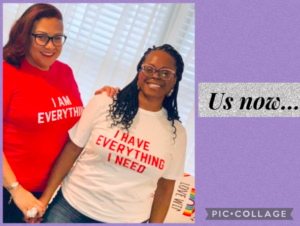 When asked about what advice they would offer someone struggling with their sexuality, Charla said “ Lean into the community, find your folks that you can trust and people who honor you, as you are…seek mental health support (we all need it, no matter how we identify), and give yourself grace. This is a part of your life, and some instances a new part, so you will need time to adjust. Make peace with your past, family and friends. Either they can be in your life, or they can choose not to be…but you cannot/did not choose your identity, it just is, loving people unconditionally is about acceptance. If they cannot accept you, that is a loss that they will have to manage. You will have some grief and that loss can be difficult, that is why community is so important. We need each other as support to navigate the hills and valleys of being queer and a person of color.”
When asked about what advice they would offer someone struggling with their sexuality, Charla said “ Lean into the community, find your folks that you can trust and people who honor you, as you are…seek mental health support (we all need it, no matter how we identify), and give yourself grace. This is a part of your life, and some instances a new part, so you will need time to adjust. Make peace with your past, family and friends. Either they can be in your life, or they can choose not to be…but you cannot/did not choose your identity, it just is, loving people unconditionally is about acceptance. If they cannot accept you, that is a loss that they will have to manage. You will have some grief and that loss can be difficult, that is why community is so important. We need each other as support to navigate the hills and valleys of being queer and a person of color.”
Amy agreed and stated “ I agree 100% with what Charla says here. Especially the part about giving yourself grace. I wish I had known to do that in my 20’s. Giving myself grace is something I work on daily now, in my mid 40’s even. And that last part about, if they can’t accept you, that is indeed their loss. It will hurt bad; but one day that void will be filled with others that love, accept and affirm who you are as a human being. I have experienced this; it is not easy, but it gets better with time. And, then I would let them know I love them too! and that I will be there for them if they need someone to talk to or to help make connections to others.”
Resources:
Some universities have an LGBTQ resource office, like:
Some cities have their own LGBTQ resource centers, like:
PFLAG (Parents Friends of Lesbians and Gays) Locations in North Carolina:
- Alamance
- Asheville
- Charlotte
- Concord
- Fayetteville
- Hendersonville
- Gaston
- Greensboro
- Greenville
- Hickory
- Lexington
- Raleigh/Durham
- Rocky Mount
- Salisbury
- Wilmington
- Winston Salem
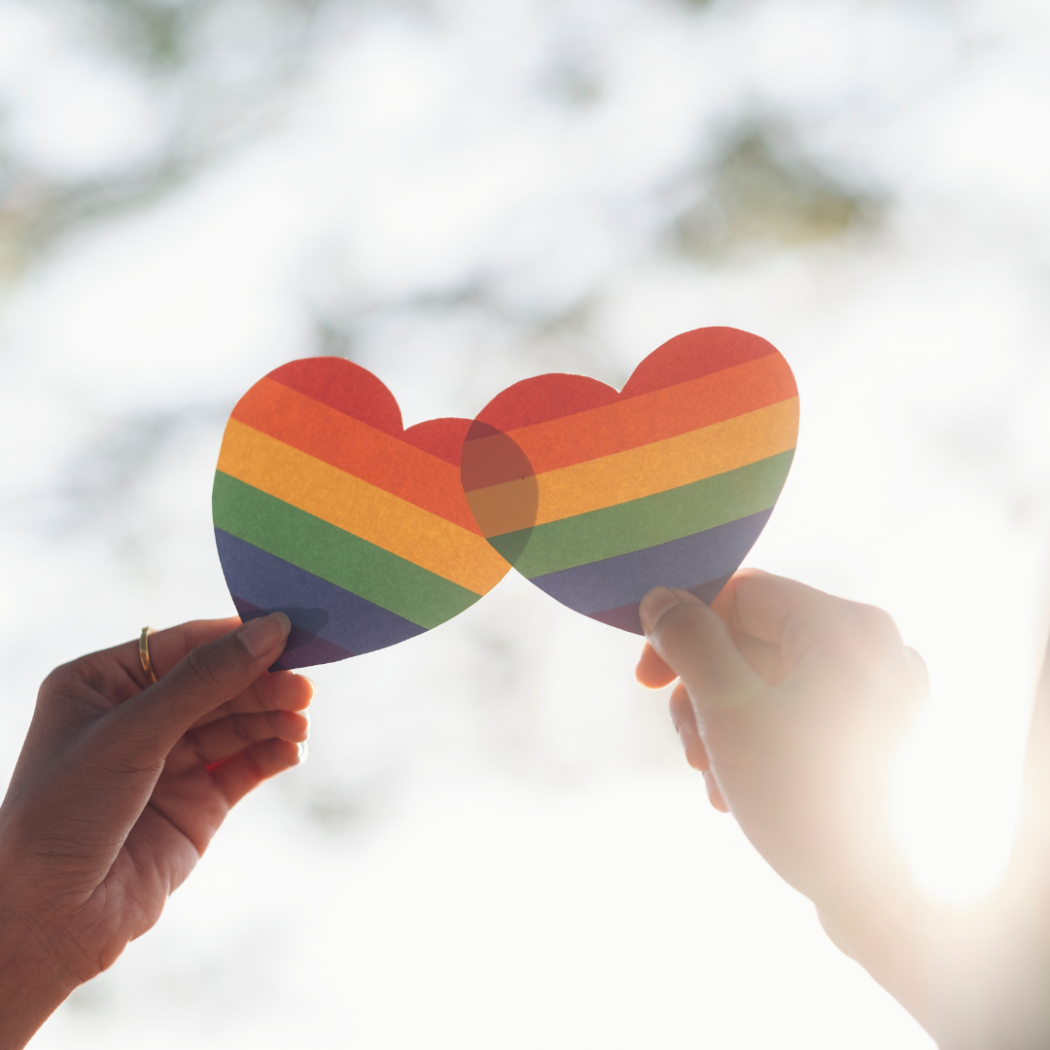
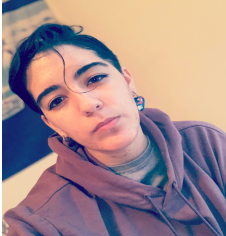
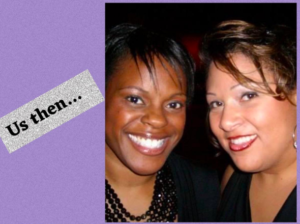
There are no comments
Add yours